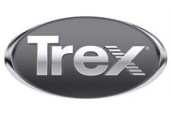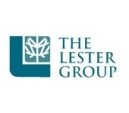U.S. consumer sentiment entered pessimistic territory for the first time in more than three years this month, as the coronavirus outbreak prompted a nationwide economic shutdown, according to the April reading of the Investor’s Business Daily/TIPP Economic Optimism Index, a leading indicator for the health of consumer spending and the economy.
The sharp drop in economic optimism reflects a deterioration in Americans’ short-term outlook for the overall economy and their personal finances, amid growing concerns that the coronavirus crisis may lead to a recession.
The IBD/TIPP Economic Optimism Index fell by 6.1 points, or 11.3%, in April, to a reading of 47.8, its first descent into pessimistic territory since September 2016, bringing to an end a record 42-month optimistic streak. This is the largest monthly decline in the index since October 2013, when the federal government entered a 16-day shutdown that took around $24 billion out of the U.S. economy and furloughed approximately 800,000 federal workers. Further highlighting the dramatic reversal in consumer confidence, 50% of Americans surveyed now believe that the U.S. economy is currently in a recession, up from just 17% in March. At the same time, however, the index remains above a reading of 43.8 set in November 2007, one month before the economy entered the Great Recession.
Americans’ views on the economy have turned negative as government measures aimed at stemming the spread of the coronavirus take a significant toll on the labor market. Amid widespread business closures, the number of Americans filing for unemployment benefits soared to a record 6.6 million for the week ending March 28, which is double the previous record of 3.3 million set the week before. Also, the economy lost 701,000 jobs in March, the first contraction in the labor market since September 2010, while the unemployment rate jumped from 3.5% to 4.4%.
The decline in optimism was broadly felt. In April, 17 of the 21 demographic groups that Investor’s Business Daily and TechnoMetrica monitor on a monthly basis reported declines in the overall index. In addition, 15 segments posted readings in pessimistic territory this month, up from six in March. An index score of 50 is neutral, above 50 is positive, and below 50 is negative.
Consumer confidence waned across all U.S. regions. The South posted the largest month-over-month drop in the index, from 59.4 in March to 51.7 in April, a 7.7-point decline. Western households reported a loss of 6.7 points this month, from 52.4 to 45.7. Optimism among Midwesterners fell by 5.6 points, to 45.5, the region’s first pessimistic reading since February 2019. Meanwhile, Northeastern households posted a 2.4-point drop in the index, from 47.5 to 45.1.
IBD and TechnoMetrica also monitor three key subindexes measuring different aspects of consumer sentiment. This month, two components posted declines (the Six-Month Economic Outlook and Personal Financial Outlook subindexes), while one (the Confidence in Federal Economic Policies subindex) saw improvement.
The Six-Month Economic Outlook, a measure of how consumers feel about the economy’s prospects in the next six months, plummeted 9.8 points, or 20.5%, in April, to a reading of 38.0, the lowest since July 2016. The component measure remains in pessimistic territory for the second straight month, as the coronavirus crisis awakens fears over a prolonged economic slowdown. In fact, this month’s decline in the subindex closely mirrors the 7.7-point drop recorded between October and November 2007, which was right before the economy headed into its last recession.
The Personal Financial Outlook, a measure of how Americans feel about their own finances in the next six months, plunged 11 points, or 18%, to a score of 50.2, its lowest reading since October 2013. This marks the third straight monthly decline in the measure, the longest such streak since 2017 (March through May). However, the subindex lingers in optimistic territory for the 78th month in a row, likely supported by government efforts to blunt the economic impact from the coronavirus.
Confidence in Federal Economic Policies, a proprietary IBD/TIPP measure of views on how government economic policies are working, improved by 2.5 points, or 4.8%, in April to a reading of 55.1, marking its 14th consecutive month in optimistic territory. Americans’ sentiment towards federal fiscal policies likely brightened due to the historic $2.2 trillion relief package that was recently passed by Congress and signed by President Trump, which provided financial assistance to individuals, businesses, and the health care system as a result of the coronavirus situation.
The IBD/TIPP Economic Optimism Index is compiled from an online survey of 1,226 U.S. adults fielded from March 29 to April 1, with results weighted to match the national population for age, gender, race, and region.



